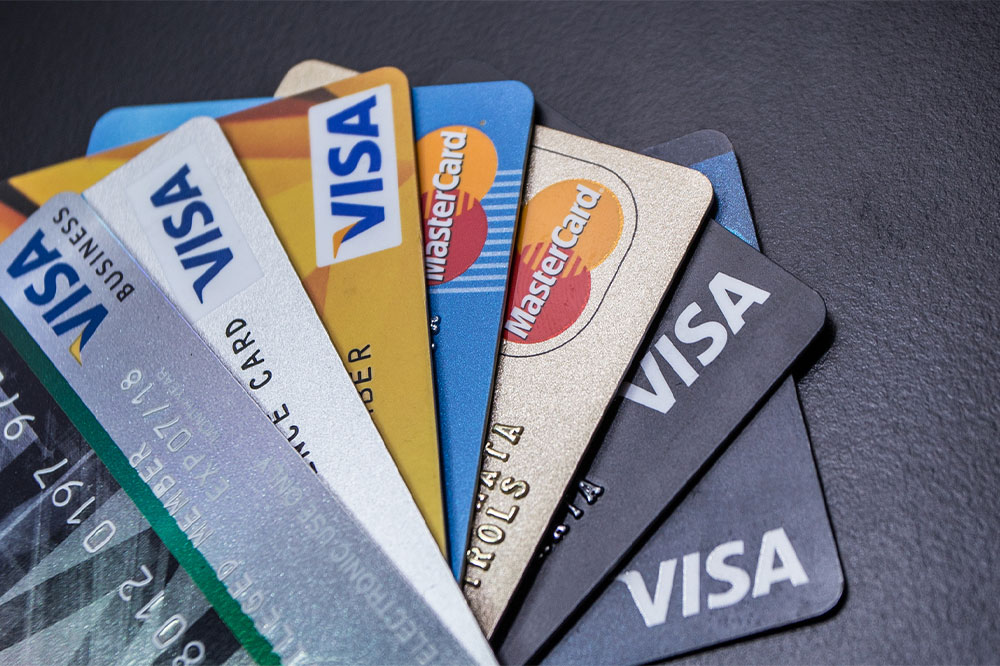Credits cards – Common types, benefits, and more
A wide variety of credit cards are marketed to customers offering different benefits and services. While you do not need to know about every single card on the market to avail of them, understanding this financial tool and why you should opt for it is important. Owning one can offer convenience and perks that help you meet your financial needs.
What is a credit card?
A credit card helps borrow funds from a financial institution to purchase different things.

Common types
Unsecured cards: These are the most prevalent kinds of cards for which you do not have to deposit cash as collateral; the promise of paying back is enough. These cards are suitable for most users and can help one build credit when used responsibly.
Student cards: Students are a unique group of interest for card companies as they have limited income in the short term. However, their advanced education level provides them with an above-average earning potential. So, they can get attractive card offers from financial institutions.
Balance transfer cards: People with high-interest card debt may consider this card to manage and pay their debt. These cards help you secure 0 percent introductory APR (annual percentage rate) for 15–21 months to give you a break from bearing interest costs. APR is the annual interest on non-payment or late payment.
Application considerations
Here are a few things to consider when applying for a credit card:
Understand your credit score: Issuers use your credit score to determine your creditworthiness. So, keep an eye on your credit score because there is always a minimum score requirement for approval.
Know your financial needs: Once you know the credit cards you qualify for, list the reasons why you need them and start narrowing down your options. Also, consider the offers, fees, interest rates, and benefits available to make an informed choice.
Check if you qualify for pre-approval: Before you start applying, check if you already have a pre-approval. However, a pre-approval is no guarantee that you will receive the card you applied for.
Effects on credit score: A credit card application triggers a deep inquiry into the credit report, implying that the card issuer will extract your credit report to assess your creditworthiness. This will lower your score, but the impact lasts for a short period.
Devise a payment strategy: A card is more a responsibility than a privilege. So, try to plan your payment strategy, i.e., the way you shall clear the debt. Understand that making small or late payments attracts fees and interest charges and may hurt your credit score. So, settle the entire bill in full every month.
Choose a method of application: You can apply for a card in person by visiting the bank or issuing company, via the issuer’s website, or even over call. Choose the method that works best for you.
Best uses
Here are a few ways to get the most out of credit cards:
Build credit: When you pay the bills on time, you can improve your credit score, which can help you secure loans later on.
Earn rewards: Cards are an excellent way to earn cash back and rewards on the purchases you make.
Pay off debt: Some cards provide a balance transfer feature with low to no interest for an introductory period. So, if used strategically, you can use this feature of the cards to transfer high-interest debt and pay it off within the promotional period.
Finance purchases: If you have a card with an introductory zero percent purchase APR, it can help you pay off a purchase interest-free.
Benefits
The most prominent benefit is buying stuff on credit within the specified limit and paying later.
Second, it is one of the most accepted payment methods globally.
Another benefit is that some cards allow interest-free withdrawals up to your limit in an emergency.
Many cards come with unlimited, never-expiring reward points that are easy to redeem.
You can get comprehensive travel insurance and personal accident coverage with a few cards.
Before you apply for a credit card, understand its features, costs, and perks to make an informed choice. Do not forget to read the fine print and clear all your queries about interest and payment details.

